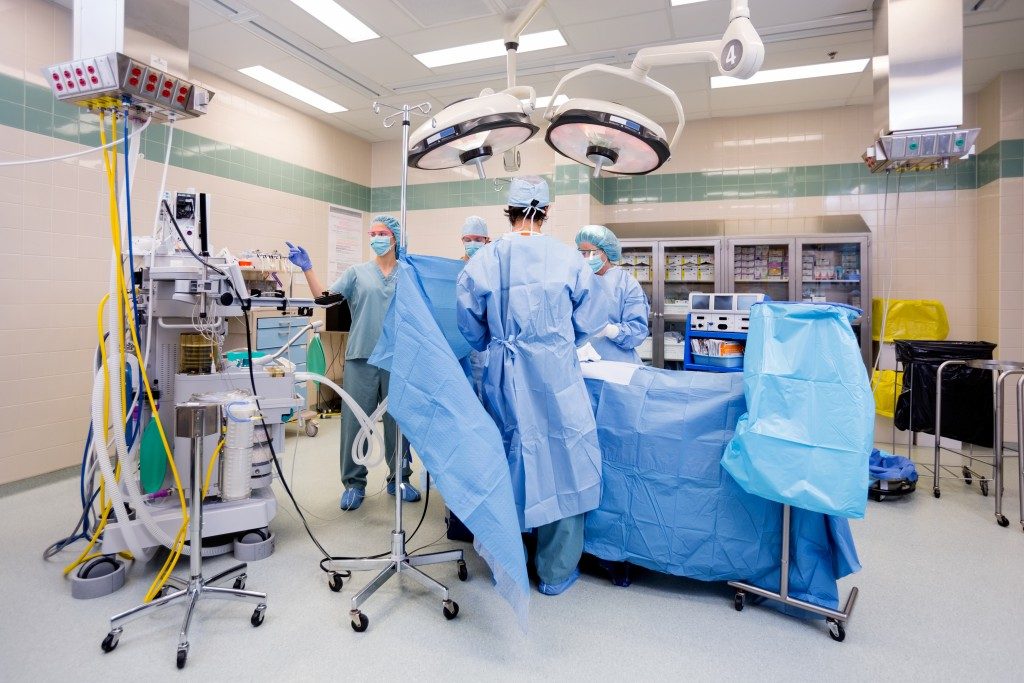 The National Institute of Arthritis and Musculoskeletal and Skin Diseases, NIAMS, states that more than a million individuals undergo surgery to replace a hip or knee every single year. If you suffer from knee osteoarthritis, you’re probably wondering if you should be one of those individuals too. But while knee surgery could ease your pain, it’s recommended that you try other treatment options first to see if you could delay surgery further.
The National Institute of Arthritis and Musculoskeletal and Skin Diseases, NIAMS, states that more than a million individuals undergo surgery to replace a hip or knee every single year. If you suffer from knee osteoarthritis, you’re probably wondering if you should be one of those individuals too. But while knee surgery could ease your pain, it’s recommended that you try other treatment options first to see if you could delay surgery further.
The Impact of Knee Osteoarthritis on Your Life
Osteoarthritis, also known as wear and tear arthritis, develop when the cartilage situated on the endmost part of your bones deteriorate, in turn making them inflamed and painful. As it advances, bone spurs or growths might also develop, and tiny cartilage and bone pieces might break off in your joint. Additionally, inflammation could further wear down your cartilage.
When this happens, you might initially feel stiffness and pain, but then it would develop to the point where you feel extreme difficulty sitting, standing, and moving around. This could increase your risk for falls and significantly limit your mobility that could result in you becoming sedentary, which in turn could lead to high blood pressure, obesity, heart disease, and diabetes, warns a renowned orthopedic knee surgeon in Orem.
How to Know if It’s Time for Surgery
 Since osteoarthritis of the knee often worsens over time, you might reach the point where standard treatment options such as physical therapy, oral medications, anti-inflammatory topicals, and steroid injections won’t work for you anymore. Your doctor would inspect your knee joint through an X-ray to see whether there’s bone rubbing against each other, and if so, knee replacement surgery might be a viable option for you. When considering knee surgery, ask yourself these questions:
Since osteoarthritis of the knee often worsens over time, you might reach the point where standard treatment options such as physical therapy, oral medications, anti-inflammatory topicals, and steroid injections won’t work for you anymore. Your doctor would inspect your knee joint through an X-ray to see whether there’s bone rubbing against each other, and if so, knee replacement surgery might be a viable option for you. When considering knee surgery, ask yourself these questions:
- Is your knee unbearably painful?
- Is your knee significantly unstable?
- Is your knee affecting your daily tasks like walking around, etc.?
- Is your knee affecting your work life?
- Is your knee causing you sleep problems?
If you answer yes to most or all of these questions, then knee surgery might be best for you.
Factors That Could Affect Your Decision
Generally speaking, active individuals between the ages of 40 and 50 tend to be wary of knee replacement surgery since knee implants might not afford them the level of activity they want. After recovery, which is about eight to 12 weeks, most individuals could go back to their daily activities without issues. But you should still avoid kneeling, jumping or running until your doctor says so. Otherwise, if you go back to work, perform activities you know you shouldn’t do, don’t get ample rest, or don’t undergo physical rehabilitation, you risk experiencing stiffness as well as issues with your range of motion.
Most individuals who struggle with knee osteoarthritis don’t even need to be sold on undergoing knee replacement surgery since they know for sure that it’s the best route for them. With that said, if you’re uncertain if it’s time for knee replacement surgery or if you want to know more about it before you could make a decision, don’t hesitate to consult your doctor.




